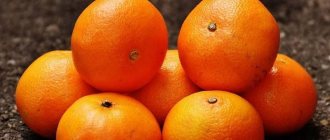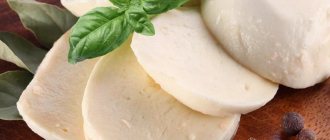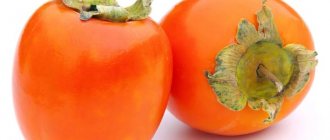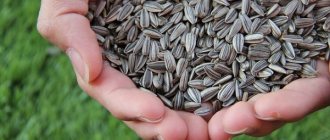28.02.2020 09:00
8983
Dried apricots are dried fruits, saturated with a valuable set of vitamins, macro- and microelements, and acids. Although fresh apricots are healthier, dried fruits are also important for health, especially during the cold season. It is useful to eat dried apricots every day, but within the acceptable limits.
Author: Tumanyan Tatevik Sergeevna
Dried apricots are dried fruits, saturated with a valuable set of vitamins, macro- and microelements, and acids. Although fresh apricots are healthier, dried fruits are also important for health, especially during the cold season. It is useful to eat dried apricots every day, but within the acceptable limits.
How and where it grows
Apricot is one of the representatives of the plum family. This tree is cultivated in China, Central Asia, Mediterranean countries and southern regions of Europe. The tree can reach a height of 7-10 m, and the diameter of its crown is 3 m. Apricots prefer sunny, warm days during the fruiting period, but they are frost-resistant in winter.
Trees like soil with moderate levels of nitrogen, phosphorus and potassium. If they are deficient, the plant sheds its flowers and ovary, and its leaves turn yellow and fall off. When there is a lack of moisture in the soil, apricot stops its growth.
Depending on the type of tree, flowering begins in April-May. Apricot flowers are white or pinkish; the ovary produces a fruit - a juicy drupe. The fruits ripen in June-July.
Dried apricots calorie content. Benefits, harms, calorie content of dried apricots per 100 grams, 1 piece
Dried apricots are the first dried fruit in terms of potassium content. Therefore, it is recommended for diseases of the heart and blood vessels. In addition, the composition includes vitamins, minerals and nutrients that the body needs for comfortable functioning.
The dried fruit also contains iron, which helps to avoid anemia (lack of hemoglobin in the blood).
Dried apricots BZHU – per 100 grams of product contains:
- proteins – 5 grams (7% of the daily value);
- fats – 1 gram (1% of the daily value);
- carbohydrates – 52 grams (18% of daily value)
100 grams contain about 215 kcal.
Dried fruit contains enough carbohydrates, so it is used as a snack to replenish energy and satisfy hunger.
In 1 piece
1 dried fruit weighs about 5-10 grams, depending on the size of the fruit. The calorie content of 1 berry is 10-15 Kcal.
When losing weight
It is a high-calorie product, so it is recommended to limit its consumption when losing weight. It is not recommended to completely exclude dried fruit from the diet, as it contains vitamins and minerals necessary to maintain the immune system and microflora of the body.
Dried apricots provide a hint of sweetness. Great as a dessert for tea (substitute for sweets, cakes, sugar).
When losing weight, eat no more than 5-6 berries per day.
Compote of dried apricots
The energy value of dried fruit compote without sugar is 25 Kcal per 100 g. To prepare 1 liter of compote you will need:
- 150-200 grams of dried apricots;
- liter of water;
When preparing compote, follow the following instructions:
- Before cooking, rinse the berries under running water (when stored in warehouses and stores, they may become dirty and covered with dust);
- pour washed dried fruits with cold water;
- put the pan on the fire;
- after the mixture boils, leave on low heat for 10 minutes;
After finishing cooking, let the compote cool and put it in the refrigerator for 5-7 hours (so that the compote infuses).
If desired, you can add sugar or citric acid to the compote.
The compote can also be diluted with other dried fruits (prunes, dried apples, raisins)
Dried apricots in chocolate
Dried fruit in chocolate is a favorite treat for children and adults. Dried dried apricots bju in chocolate per 100 grams:
- proteins – 3.5 grams (5% of the daily value);
- fats – 13 grams (17% of the daily value);
- carbohydrates – 54 grams (19% DV)
Recommended for consumption by people who find it difficult to give up sweets. It is an excellent substitute for regular chocolate.
100 grams contains 360 calories, which is 18% of the daily value. People who are losing weight are advised to avoid eating dried apricots in chocolate.
Benefit
Benefits of eating dried apricot:
- has a diuretic effect (indicated for diseases of the urinary system);
- cleanses and protects the body from harmful substances;
- due to the iodine content, it is used to treat thyroid diseases;
- Prescribe use for high blood pressure;
- has a positive effect on the condition of the visual organs (stabilizes and improves visual acuity);
- strengthens blood vessels, improves blood circulation;
Eating daily can boost your immune system. A person who eats dried apricots gets sick less often
The benefits are doubled if consumed together with prunes. The BJU of dried apricots and prunes are approximately at the same level.
Harm
It can cause harm to the body only if used in case of contraindications. It is not recommended to consume dried apricots in the following cases:
- thyroid diseases;
- diseases associated with the gastrointestinal tract (ulcers, gastritis);
- increased sensitivity to dried fruit (when the first symptoms of allergy appear: rash, redness, itching - immediately stop taking the fruit and contact an allergist for advice);
In other cases, it is recommended for daily use.
Chemical composition
Apricots lose moisture during drying, so the substances contained in the pulp are concentrated in its residue. Thus, recalculated per 100 g of dry pulp, the concentration of nutrients, minerals and vitamins significantly exceeds that in fresh fruits.
Dried apricots have a rich chemical composition. It contains (per 100 g of pulp) [1]:
- carbohydrates (simple sugars, fiber, pectin, starch) - 50-55 g;
- proteins - 3 g;
- fats, including unsaturated fatty acids, phytosterols - 0.5 g;
- minerals (macro- and microelements);
- vitamins.
More than 80% of dried apricot carbohydrates consist of easily digestible carbohydrates (mono- and disaccharides).
It is they who determine the high energy value of these fruits. The glycemic index of dried apricots is 30 units, so they are not recommended for consumption by those suffering from diabetes. Carbohydrates [2][3]
| Name | Content per 100 g, grams |
| Mono- and disaccharides | 48,0 |
| Starch | 0,35-0,4 |
| Cellulose | 7,3 |
| Pectin | 1,3-2,1 |
There are few proteins in dried apricots (only 3 g per 100 g of product), but they contain all the essential amino acids necessary for humans, without which the synthesis of complete protein is impossible.
Essential amino acids [2][3]
| Name | Content per 100 g, grams |
| Arginine | 0,06-0,19 |
| Valin | 0,12-0,18 |
| Histidine | 0,044-0,08 |
| Isoleucine | 0,08-0,15 |
| Leucine | 0,14-0,29 |
| Lysine | 0,12-0,34 |
| Methionine | 0,019-0,02 |
| Threonine | 0,065-0,18 |
| Tryptophan | 0,014-0,09 |
| Phenylalanine | 0,08-0,2 |
Among the main protein substances, dried apricots contain a large amount of purine bases (up to 25% of the daily value in 100 g of dried apricots), so consuming this dried fruit is dangerous for gout and urolithiasis.
There is little fat in dried apricots (up to 0.5 g per 100 g of pulp), but they are healthy because 3/4 are represented by unsaturated fatty acids. Dried apricots also contain special fats - phytosterols, which in moderate quantities have an anticholesterolemic and antitumor effect. Their amount in 100 g of dried apricots is more than 50% of a person’s daily requirement.
The nutritional and energy-important compounds in dried apricots are harmoniously supplemented with vitamins and minerals.
Vitamins and vitamin-like compounds [2][3]
| Name | Content per 100 g of pulp, milligrams |
| Provitamin A (carotene) | 3,5-4,5 |
| Carotenoids lycopene | 0,2 |
| Carotenoids lutein + zeaxanthin | 0,052-0,082 |
| Vitamin B1 (thiamine) | 0,015-0,1 |
| Vitamin B2 (riboflavin) | 0,058-0,074 |
| Vitamin B4 (choline) | 13,9 |
| Vitamin B5 | 0,52 |
| Vitamin B6 | 0,14-0,17 |
| Vitamin B7 (biotin) | 0,001 |
| Vitamin B9 (folic acid) | 0,01-0,014 |
| Vitamin PP (nicotinic acid) | 2,6-3,9 |
| Vitamin C (ascorbic acid) | 1,0-4,0 |
| Vitamin E (tocopherol) | 4,3-5,5 |
| Vitamin K (phylloquinone) | 0,031 |
In terms of potassium concentration in the pulp, dried apricots are the leader among plant products.
This dried fruit is also a source of many other macro- and microelements. Moreover, some of them are contained in dried apricots in the daily amount required for the human body, for example, silicon, boron, chromium. Mineral composition [2][3]
| Name | Content per 100 g of pulp, milligrams |
| Potassium | 980,0-1160,0 |
| Phosphorus | 54,2-77,5 |
| Sulfur | 50,0 |
| Silicon | 44,0 |
| Calcium | 38,0-90,0 |
| Magnesium | 35,0-48,0 |
| Iron | 2,7-6,0 |
| Aluminum | 0,860 |
| Manganese | 0,173-0,282 |
| Bor | 0,27 |
| Copper | 0,27 |
| Zinc | 0,2-0,39 |
| Chromium | 0,059-0,1 |
| Iodine | 0,0034 |
| Selenium | 0,0022 |
The plant fiber of apricot fruits is capable of accumulating the radionuclide strontium, therefore apricots growing in radiation-affected regions are strictly prohibited for consumption and harvesting, including in the form of dried apricots.
The calorie content of dried fruits is high and amounts to 220-240 kcal per 100 g of product (depending on the type of apricots used). Such a high calorie content is provided mainly by carbohydrates, since their amount in 100 g of dried apricots is 55 g.
Diet with dried apricots
Losing weight on dried apricots is not a difficult task, but a diet involving this delicacy will force you to muster your will. The duration of this weight loss method is 5 days, during which the body must be cleansed. The result will be a loss of 5 kilograms of excess weight. For the entire period you will have to eat only dried apricots for weight loss. The menu is very simple: take 300 grams of dried fruits, rinse, let stand in water, then add apricot juice (0.5 l) and grind in a blender. The puree is divided into equal parts and eaten in 4 doses.
There is another diet option that is more gentle. In addition to dried fruits, he allows the consumption of other food products. It is important to count calories. For women, their amount should not exceed 1500 kcal per day, for men no more than 1900. You can choose dishes according to your preferences, the main thing is that they are low-fat. When creating a menu, adhere to the following recommendations:
- Breakfast. 70 grams of dried apricots, optional tea or coffee, but no sugar added.
- Dinner. 50 grams of dried fruit, dietary soup and no more than 100 grams of lean boiled meat. Meat can be alternated with fish.
- Dinner. Porridge with dried fruit (50 grams). On other days, you can replace porridge with cottage cheese.
Benefits for the human body
When consumed regularly, dried apricots exhibit many beneficial properties for the human body:
- improves the passage of nerve impulses through the conduction system of the heart, which has an antiarrhythmic effect;
- reduces cholesterol levels in the blood, thereby reducing the likelihood of the formation of cholesterol plaques on the vascular walls;
- increases the elasticity of blood vessels;
- promotes hematopoiesis;
- normalizes blood viscosity;
- reduces the need of cells for oxygen;
- normalizes tissue respiration;
- stimulates intestinal motility;
- normalizes the functioning of the liver and pancreas;
- promotes the removal of toxins and toxic substances from the body;
- improves brain function;
- restores vision;
- has a diuretic effect, which helps reduce swelling;
- increases the body's immunity and resistance to infections;
- improves metabolism, including fats;
- participates in the synthesis of steroid hormones;
- stimulates the thyroid gland;
- participates in tissue repair processes;
- activates the production of collagen, elastin and hyaluronic acid, which prevents skin aging;
- has an antioxidant effect, thereby strengthening cell membranes;
- exhibits antitumor effect;
- enriches the body with vitamins and minerals;
- helps maintain acid-base and water-electrolyte balance in the body [4].
Such a variety of positive functions makes dried apricots one of the favorite delicacies, which are recommended to be included in the therapeutic diet for many diseases of the human body.
Apricot for weight loss. Apricots: benefits and harms
In addition to their high taste qualities, apricots saturate the body with microelements and vitamins, perfectly satisfy hunger, have a healing effect for many diseases, and increase a person’s performance, making him cheerful.
Apricots are a source of good mood and energy. The fruits are very sweet. Apricot juice contains a lot of sugar, including glucose.
People with a disease such as diabetes are not advised to consume this fruit at all or minimize its amount in their diet.
Dried apricots (apricots and dried apricots) also contain excess sugar, so they are contraindicated for anyone with metabolic disorders.
Apricots rank first among other fruits in terms of beta-carotene content, from which vitamin A is produced in the body.
It is known that beta-carotene is an antioxidant, which, according to recent research, can resist the development of cancer and heart disease.
Beta-carotene is also essential for supporting vision and protecting the body from radiation, viruses and microbes.
The vitamin C contained in the fruit significantly enhances its beneficial properties. Vitamin C is a serious helper of the immune system and a strong cancer protector.
Apricots contain important elements such as magnesium, iron and potassium. These substances provide invaluable support to the cardiovascular system as a whole.
Magnesium and iron increase hemoglobin in the blood and, in case of anemia, optimize the general condition of the body, and potassium helps maintain blood vessels in good shape.
The fruits are used to enhance digestive functions, as a mild laxative and antipyretic. For dry coughs, apricot is indicated for its ability to thin mucus.
If apricot is used for a long time, it will act as a diuretic. Children need this fruit to improve health and stimulate growth.
Apricots are indispensable for various gastric diseases. They unobtrusively stimulate the glandular apparatus of the digestive organs, in particular the stomach, and help normalize the acidity of gastric juice. And this leads to improved activity of the pancreas, and accordingly, the functioning of the gallbladder and liver improves.
Apricots are indispensable for inflammatory processes in the kidneys. Potassium has a positive effect on the condition of the bladder and kidneys. It is also worth recalling the ability of these fruits to remove all kinds of waste and toxins from the body.
Due to the high content of magnesium and phosphorus, apricots help improve memory and increase mental performance.
Regular consumption of apricots shows positive results in the prevention of atherosclerosis. The fruit contains a large amount of fiber, due to which some of the cholesterol that enters the intestines with food is not absorbed. Accordingly, the amount of bad cholesterol in the blood is significantly reduced.
Another positive point is the presence of iodine salts in this fruit. Therefore, it helps the thyroid gland, stimulates the production of necessary hormones and prevents goiter from developing.
During the season, these fruits are consumed fresh; the rest of the year you can enjoy dried fruits - apricots and dried apricots. They differ from each other by the presence of a seed when dried. In dried apricots the pit is removed, but in apricots it is present.
Dried fruits serve as an excellent alternative to candies and unhealthy sweets. Anyone who monitors their diet and weight should pay special attention to the regular consumption of dried apricots or apricots.
The benefits are undoubted, there is no harm to the figure. However, it should be remembered that the calorie content of dried apricots is quite high, 227 kcal per 100 grams. Don’t get too carried away and eat half a kilo at a time.
Attention! Apricot kernels contain dangerous substances - amygdalin and hydrocyanic acid.
A representative of sweet, juicy fruits is apricot. The fruits are loved by almost everyone. Today there is still debate about the place of origin of this wonderful fruit. Many argue that Asian countries are considered the birthplace of apricots. Then the fruit migrated to Armenia, and from there it spread throughout Europe. Apricots not only have a pleasant taste, but also a huge number of beneficial properties. You just need to know in what quantities to use the product. After all, excessive consumption of unripe apricots can be harmful to health.
Use in folk medicine
Both folk and official medicine recognize the healing properties of dried apricots and recommend enriching their diet with it for both sick and healthy people.
Dried apricots are useful for eating when:
- atherosclerosis;
- arrhythmias;
- arterial hypertension;
- coronary heart disease;
- tendency to thrombosis;
- cardiac and renal edema;
- diseases of the liver and pancreas in compensated form;
- constipation;
- anemia;
- pathologies of the thyroid gland;
- sexual dysfunction;
- hypovitaminosis;
- cerebrovascular accident;
- ophthalmopathy, myopia.
For preventive purposes, dried apricots are recommended for:
- increasing immunity before the season of infectious viral diseases;
- normalization of stool during a diet;
- preventing the appearance of signs of skin aging;
- people working in hazardous working conditions or having bad habits;
- after serious illnesses and operations.
It is useful to include these dried fruits in the diet of cancer patients, pregnant women and nursing mothers.
Possible harm
Despite all the healing properties of dried apricots, its use should be limited to people who suffer from:
- gout and urolithiasis (contains many purine bases);
- diabetes mellitus (increases blood glucose levels);
- diseases of the pancreas and liver in a decompensated form (can provoke an exacerbation);
- peptic ulcer of the stomach and duodenum (increases acidity);
- severe obesity (high carbohydrate load);
- food allergies [5].
To avoid unpleasant consequences, in case of such pathologies you should consume dried apricots rarely and in very small quantities (up to 10 pieces per week). And this applies only to natural dried apricots, dried in a natural way.
The possible harm from eating dried apricots can be greater if you consume “store-bought” dried fruit. Beautiful dried apricots, which can be purchased in almost any store, do not have the beneficial properties of homemade dried apricots. It's all about the way it's prepared.
The harm of “store-bought” dried apricots
Industrially dried fruits can be harmful to human health. In the mass production of this dried fruit, apricots are dried in special ovens using sulfur dioxide (sulfur dioxide). This process is called sulfurization and it consists of exposing apricot halves to vapors of burnt sulfur in ovens for 8-12 hours. If unripe fruits were selected for drying, the sulfurization process can take up to 20 hours. As a result of this processing, dried apricots will look attractive and have a long shelf life. Some producers, instead of steam treatment, soak apricots in solutions of potassium or sodium sulfite salts, which provides the same effect.
Sulfur dioxide is a food additive permitted in our country (E220) and its maximum content in dried apricots should not exceed 0.2%. Unscrupulous manufacturers, trying to improve the appearance of the product, often exceed these standards. The output is dried apricots with a concentration of sulfur dioxide of more than 0.3%, which is dangerous to health, especially in childhood and old age, after serious illnesses [6].
If the permissible content of sulfur dioxide in dried apricots is significantly exceeded or when a large amount of such dried fruits is consumed, signs of food poisoning and intoxication may appear.
↑ Advantages of the dried apricot diet
- In addition to the fact that you can lose a couple of extra pounds in a short period of time, eating this dried fruit perfectly discourages cravings for sweets. But it is known that it is precisely the addiction to confectionery and other sugar-containing products that so often becomes a stumbling block on the path to the desired forms. Due to the lack of glucose during active mental work, many people want to treat themselves to chocolate or something similar. But don’t rush to run to the store for the “forbidden fruit.” Try replacing it with dried apricots, which perfectly nourishes the brain and brings pleasure to the taste buds. By introducing dried apricots and other dried fruits into your diet, you will probably soon notice that you crave sweets less and less. And over time, probably, those with a sweet tooth will completely get rid of their harmful attachment. And it’s not surprising, because the need for sweets will be more than satisfied with dried fruits.
- Dried apricots are rich in other beneficial properties. Due to its abundant potassium content, it has a positive effect on the functioning of the cardiovascular system. Dried apricots contain significant quantities of iron, phosphorus, zinc, chlorine, nickel, selenium and other natural benefits. In this regard, the introduction of dried apricots into the menu is very useful for anemia, hypertension, the occurrence of atherosclerosis and anemia.
- The varied vitamin composition of dried apricots reduces the risk of harm to the body from diets in which the diet is significantly reduced. A distinctive feature of dried apricots is the presence of a large amount of fiber in it. This useful substance helps to naturally cleanse the intestines of toxins and other substances that can cause harm.
- Another advantage of the method using this dried fruit is the nutritional value of dried apricots: 100 grams contain about 230 calories. This is a significant indicator. However, sweets or cakes contain much more energy units. And it’s difficult to eat a lot of dried apricots. Eating this delicacy even in small quantities helps to saturate the body and avoid attacks of acute hunger and the desire to lose control. In addition, most of the calories in dried apricots come from healthy carbohydrates. They are quickly converted into energy and consumed by the body. But there are practically no fats, which increase the chances of gaining excess weight, in dried apricots. The introduction of dried apricots into the diet also has a positive effect on the metabolic process, the speed of which is important for losing weight and maintaining the new weight.
- Eating dried apricots promotes the production of endorphin, a hormone that naturally lifts your mood and relieves irritability. The composition of dried apricots has a very good effect on the human nervous system. Its components do not overload the body and are absorbed quite easily.
How to choose “store-bought” dried apricots
When buying dried apricots in a store, first of all, you need to carefully read the label on the package. Often on the shelves you can find dried apricots packaged independently by the retail chain. You should not purchase a product that does not have the original manufacturer's label.
The absence of an industrial label excludes the possibility of obtaining reliable information about the manufacturer, processing method, quality indicators and shelf life of such a product. For the same reason, you don’t need to buy dried apricots piled high on the counter.
When purchasing imported dried apricots in original packaging with a branded label, the second step is to inspect the integrity of the packaging and the appearance of the product. The packaging must be clean, undamaged, and the product in it must be uniform in color, free of dark spots and traces of pests.
There is no need to give preference to bright orange dried apricots with a glossy finish: such a product is clearly oversaturated with preservatives. The paler the dried apricots look, the greater the likelihood of minimal chemical processing [7].
Dried apricots in the diet
The effect of dried apricots on health and weight loss
First of all, it should be noted that dried apricots are a healthy product. It contains a whole complex of biologically active elements that contribute to the normal functioning of the heart and blood vessels, strengthen muscle and bone tissue, provide adequate tissue nutrition and give a boost of energy. Such dried fruits help cleanse the body and stimulate intestinal motility. They are great for snacking, providing a quick feeling of fullness.
But even taking into account all these beneficial qualities, a logical question arises - is it possible to eat dried apricots while on a diet, because they are quite a high-calorie product. The answer will be positive, but ambiguous. Consumption of dried apricots while on a diet may occur. But in order to benefit from it while avoiding excess weight gain, it is important to follow certain rules.
Rules for eating dried apricots on a diet
The main rule for eating dried apricots is moderation. And it concerns not only dietary nutrition. Even if you do not set yourself the goal of losing weight or maintaining it at a certain level, you should not abuse dried fruits. In addition to the fact that you risk adding a few extra pounds, you are also at risk of intestinal problems. When dieting, you should limit yourself to no more than 20 - 30 g of dried apricots per day.
The second rule determines the time of consumption of dried fruits. Since dried apricots are rich in carbohydrates and high in calories, you need to give your body the opportunity to burn the energy obtained from it. It's very easy to do. Eat dried fruits in the morning. Moreover, the most effective would be to use it as a dessert after lunch.
Dried apricots cleanse the body and remove excess fluid. And these processes directly affect weight loss. But in order for these qualities of dried apricots to fully manifest themselves, it is important to drink enough water - at least 2 liters per day.
By following these simple rules, you don't have to worry about gaining extra pounds.
If your diet is balanced and healthy, then be sure that your figure will remain in order. If you want to lose weight and are looking for an effective diet in which you can consume dried apricots, then pay attention to the options presented below. Is it possible to eat dried apricots while on a diet: you can definitely eat dried fruits in reasonable quantities, as they have a positive effect on health and help you lose weight
Homemade dried apricots
Home-dried dried apricots are a truly healthy product. To choose high-quality dried fruit, you need to pay attention to:
- Appearance. The color of naturally dried apricot is orange-brown or brown. There should be no traces of mold on the surface of the dried apricots.
- Smell: should be pronounced apricot, without foreign impurities or mustiness.
- Consistency. Dried apricots should not be very soft or very dry.
- Surface. The surface of dried fruits should not be sticky to the touch.
It is better to buy dried apricots for storage during the harvesting season (June-August). In this case, you don’t need to worry about the conditions in which it was stored.
The best option for preparing dried apricots is drying them at home. This can be done in several ways:
- on a flat surface in direct sunlight;
- in a suspended state (possibly in partial shade);
- in the dryer.
Best materials of the month
- Coronaviruses: SARS-CoV-2 (COVID-19)
- Antibiotics for the prevention and treatment of COVID-19: how effective are they?
- The most common "office" diseases
- Does vodka kill coronavirus?
- How to stay alive on our roads?
When drying in this way, it is important that the apricot halves lose as much moisture as possible, otherwise they will quickly become moldy during storage. During drying, apricots lose up to 80% of their weight: for 1 kg of dried apricots, about 4 kg of fresh apricots are needed.
How many dried apricots can you eat per day?
There are different recommendations on how much dried apricots should be consumed during a diet. It depends on what regime you are currently following. If you want to snack on dried fruits as a sweet, then let them be no more than 30 grams per day. If you adhere to a diet, the main component of which is dried apricots, then the amount increases to 200-300 grams, which should be consumed in equal portions throughout the day.
- Movalis - instructions for use. Indications for the drug Movalis in injections or tablets with price and reviews
- How to make homemade wine
- How to feed strawberries
Storage conditions and periods
To ensure that dried apricots do not lose their beneficial properties and taste throughout the entire storage period, they must be stored at room temperature in a clean, dry glass jar with a closed lid. Plastic bags and fabric bags are not suitable for these purposes: dried apricots will quickly lose the remaining moisture, become moldy or “pull” other odors. Another reliable option for long-term storage of this dried fruit is freezing.
The shelf life of dried apricots is 12 months (until the next harvest), and when frozen - 18 months (provided there is no intermediate thawing).
Fasting day on dried apricots
To get rid of excess weight, you can arrange fasting days on dried apricots. There are also effective diets using these fruits. This allows each person to choose the best option.
If you need to lose a couple of kilograms in a day or cleanse the intestines of harmful substances, you can use a fasting day. This power system can be used at intervals of 10 or 15 days.
There are 2 options for fasting days. In the first case, you can eat a maximum of 300 g of dried fruits per day. They need to be divided into 3 main meals - 100 g each. If the principles of fractional nutrition are followed, you should eat 60 g of dried apricots 5 times a day.
Each fruit must be chewed slowly and thoroughly. Apart from dried apricots, it is forbidden to eat any solid food. At the same time, you can drink an unlimited amount of clean water. To enhance the laxative effect and achieve more pronounced detoxification, you need to do an enema in the morning.
The second unloading option requires some preparation. To do this, the day before you need to take 200 g of fruit and pour 1 liter of hot water. Leave it overnight and strain in the morning. Eat dried fruits throughout the day in small portions. The infusion must be drunk.
Thanks to the use of fasting days, it is possible to improve the functioning of the body, remove excess fluid and get rid of toxins and toxic substances. Systematic unloading helps keep weight under control and stay in great physical shape.











